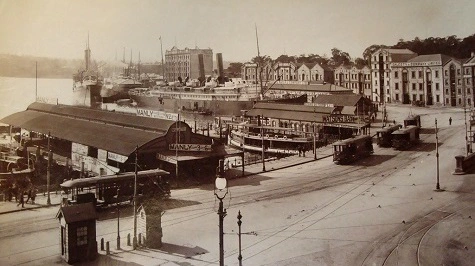
Travel and Culture
It is often said that travel broadens the mind. Whether you are an armchair traveller or are planning a trip our courses will unveil the secrets of some of the world's top destinations. So travel into WEA in the city or travel to your favourite chair at home and let the adventures begin.
Available Classes
Discover the Baltic States
<p>These sessions will introduce and explore the three Baltic states — Lithuania, Latvia and Estonia. The history, geography, politics and economy will all be briefly covered, but there will be an
...Available Classes
Backroads of Britain - Cornwall
<p>We explore some of the fascinating history and sites along the backroads of Cornwall which is known for its smuggling industry. We will explore the smugglers’ den at Jamaica Inn, Bodmin Moor, the
...Available Classes
Travel to Ancient Pompeii
<p>A visit to Pompeii is a journey into the past like no other place on earth can be. It is not the beautiful monuments or the public spaces that makes the place unique and unforgettable. It is the
...Available Classes
Victorian and Federation Sydney - Sydney CBD Walking Tour
<p>The story of the founding of colonial Sydney is well known, but what is less well known is the Victorian and Federation period, where the city we know today really took shape. Between 1850 and 1900
...Available Classes
Seven Days in Paris
<p>Visit all the classic Paris tourist sites, including new Paris; a city of multicultural markets, mosques and migrant neighbourhoods. We will discuss the fascinating history of Paris and discover
...Available Classes
Mysterious China - Forbidden City and Suzhou Canals
<p>We embark upon two Journeys - the Forbidden City and Suzhou Canals, which will give a feel for what it is like to travel in China where the “far shores of Cathay” have fascinated the West for
...

Mysterious China - Forbidden City and Suzhou Canals
<p>We embark upon two Journeys - the Forbidden City and Suzhou Canals, which will give a feel for what it is like to travel in China where the “far shores of Cathay” have fascinated the West for
...

Available Classes
Spain Extremadura - Romans, Moors & Conquistadors
<p>Extremadura is one of Spain’s more remote regions, yet it is where many of the Conquistadors were born. We travel south to visit the impressive Roman settlements of Merida and Italica. Then to
...

Available Classes
The Impact of Korea on Japan
<p>Explore the fascinating connections between Japan and Korea which began 2400 years ago in a movement of people through the Korean Peninsula which brought rice farming technology to Japan. These
...The Impact of Korea on Japan
<p>Explore the fascinating connections between Japan and Korea which began 2400 years ago in a movement of people through the Korean Peninsula which brought rice farming technology to Japan. These
...Available Classes
The Improving Macquaries: Lachlan
<p>This walk will help you re-imagine early nineteenth-century Sydney Town and the task of governing the colony of convicts. Colonel Macquarie had to bring order to a society riven by conflicts. How
...Available Classes
From Town to City: Colonial Sydney from 1840 to 1890
<p>When penal transportation ceased to NSW in 1840, Sydney was still a large town of approximately 29,000 people. The next 50 years would see its transformation into a colonial city. In this course we
...






